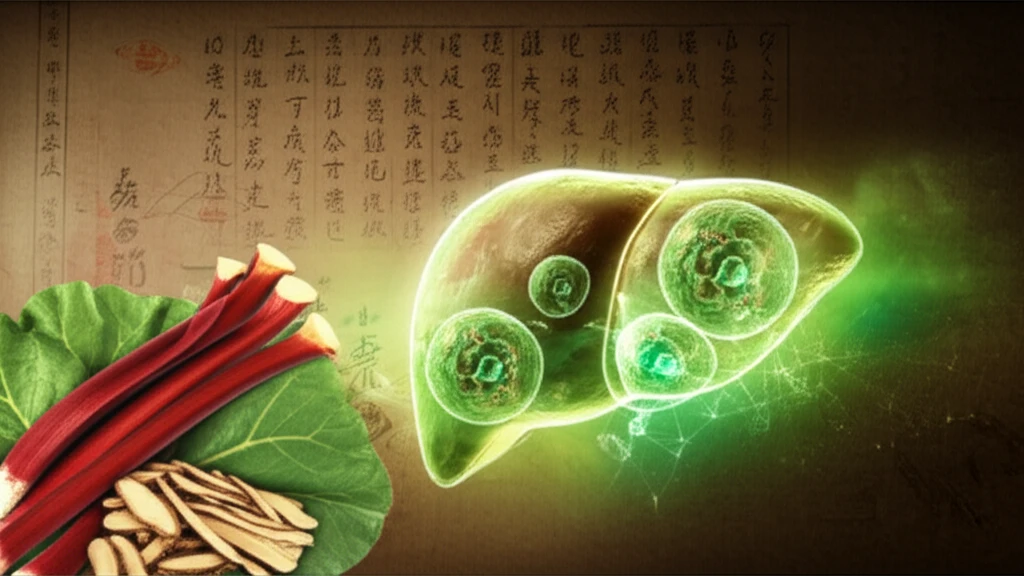
Can Rhubarb Extract Fight Liver Cancer? New Hope for Hepatocellular Carcinoma
"Scientists explore how rhubarb's natural compounds could offer a new strategy in the fight against liver cancer by targeting key signaling pathways."
Hepatocellular carcinoma (HCC), a common and deadly form of liver cancer, presents a significant global health challenge. While advancements in early detection and surgical techniques have improved outcomes, long-term survival rates remain unsatisfactory due to tumor recurrence and metastasis. Sorafenib, a first-line targeted drug, has limitations, underscoring the urgent need for safer, more effective treatments.
Traditional Chinese medicine (TCM) has long been a source of potential therapeutic agents, and Rheum palmatum (RP), commonly known as rhubarb, has garnered attention for its medicinal properties. Historically used to treat gastrointestinal and liver diseases, recent studies suggest that rhubarb extract possesses anti-cancer effects. This article explores the latest research investigating rhubarb's potential to combat HCC by targeting specific molecular pathways.
Researchers are particularly interested in how rhubarb extract impacts the STAT3 signaling pathway, which plays a crucial role in cancer cell growth and survival. By understanding these mechanisms, scientists hope to unlock new strategies for treating HCC and improving patient outcomes.
How Does Rhubarb Extract Target Liver Cancer?

The study, recently published in the Journal of Ethnopharmacology, investigated the effects of Rheum palmatum extract on HCC cells. Researchers found that RP extract significantly reduced the viability, migration, and invasion of HCC cells in vitro. This suggests that rhubarb may contain compounds that directly inhibit the growth and spread of liver cancer cells.
- Reduced Cell Viability: RP extract decreased the survival of HCC cells in a dose- and time-dependent manner.
- Inhibited Migration and Invasion: The extract hindered the ability of HCC cells to migrate and invade surrounding tissues.
- Suppressed STAT3 Phosphorylation: RP extract reduced the activation of STAT3 and its upstream kinases, JAK2 and Src.
- Downregulated STAT3 Target Genes: The extract decreased the expression of genes regulated by STAT3, including those involved in cell survival, proliferation, and angiogenesis.
- Reduced Tumor Growth In Vivo: RP extract suppressed the growth of HCC tumors in a mouse model.
A New Avenue for Liver Cancer Treatment?
The study provides compelling evidence that rhubarb extract may offer a new approach to treating hepatocellular carcinoma by targeting the STAT3 signaling pathway. While further research is needed to fully understand the mechanisms and optimize its use, rhubarb extract holds promise as a potential therapeutic agent for liver cancer.
